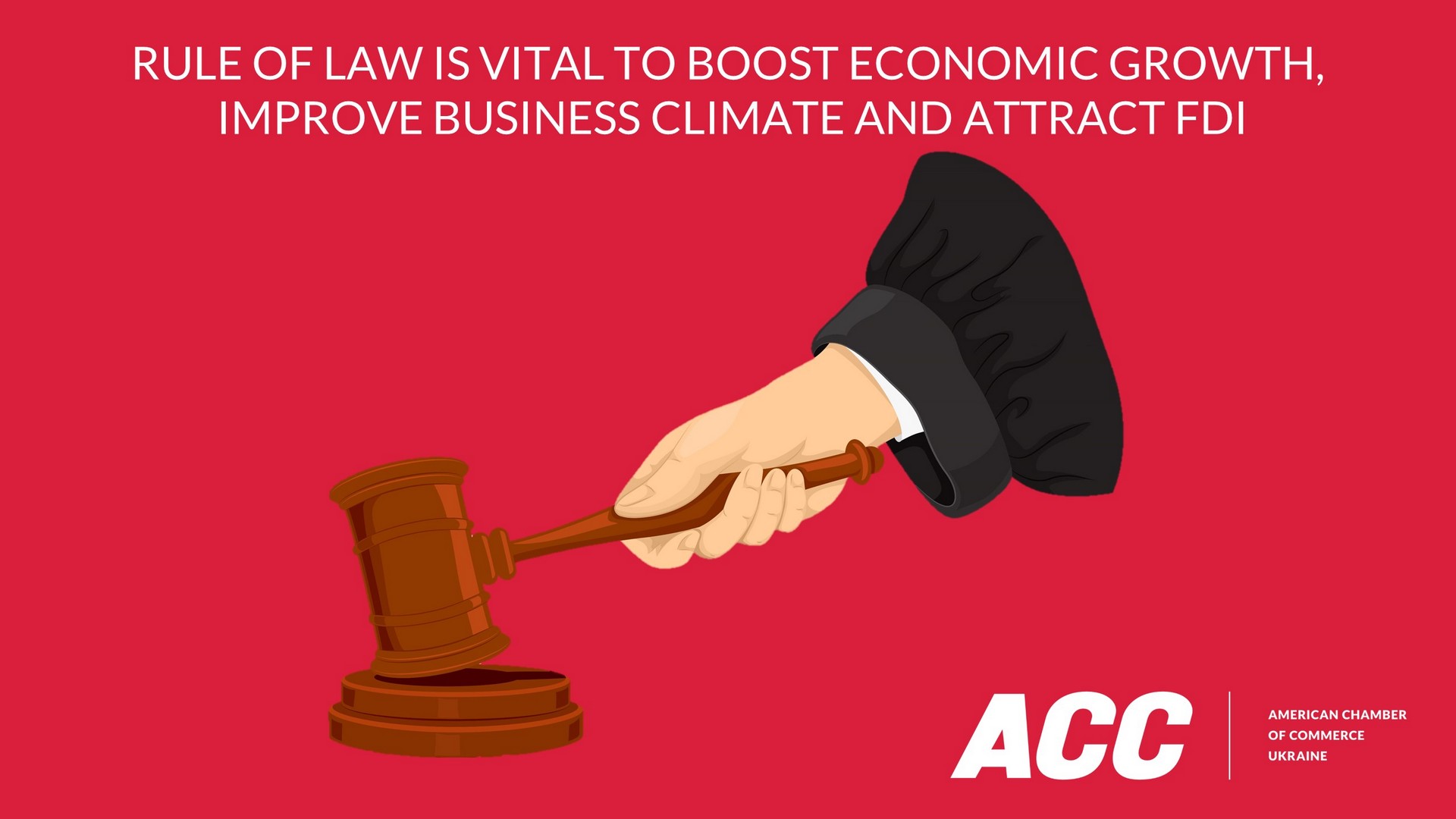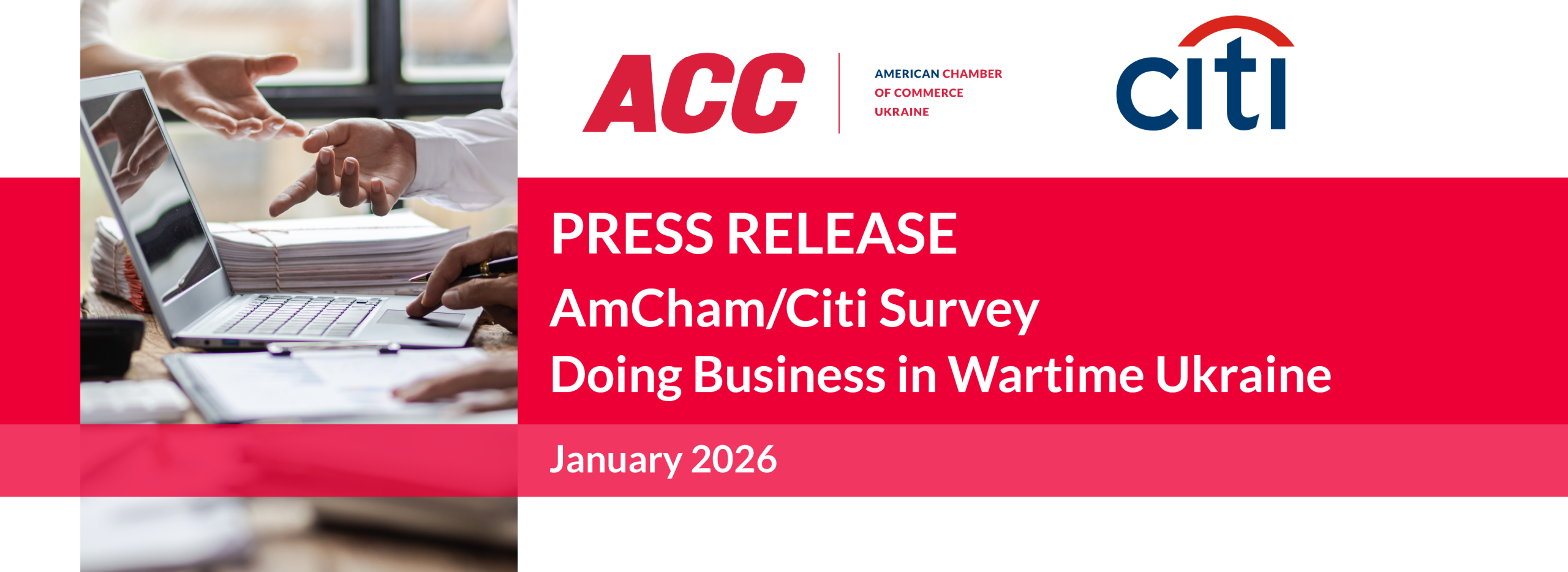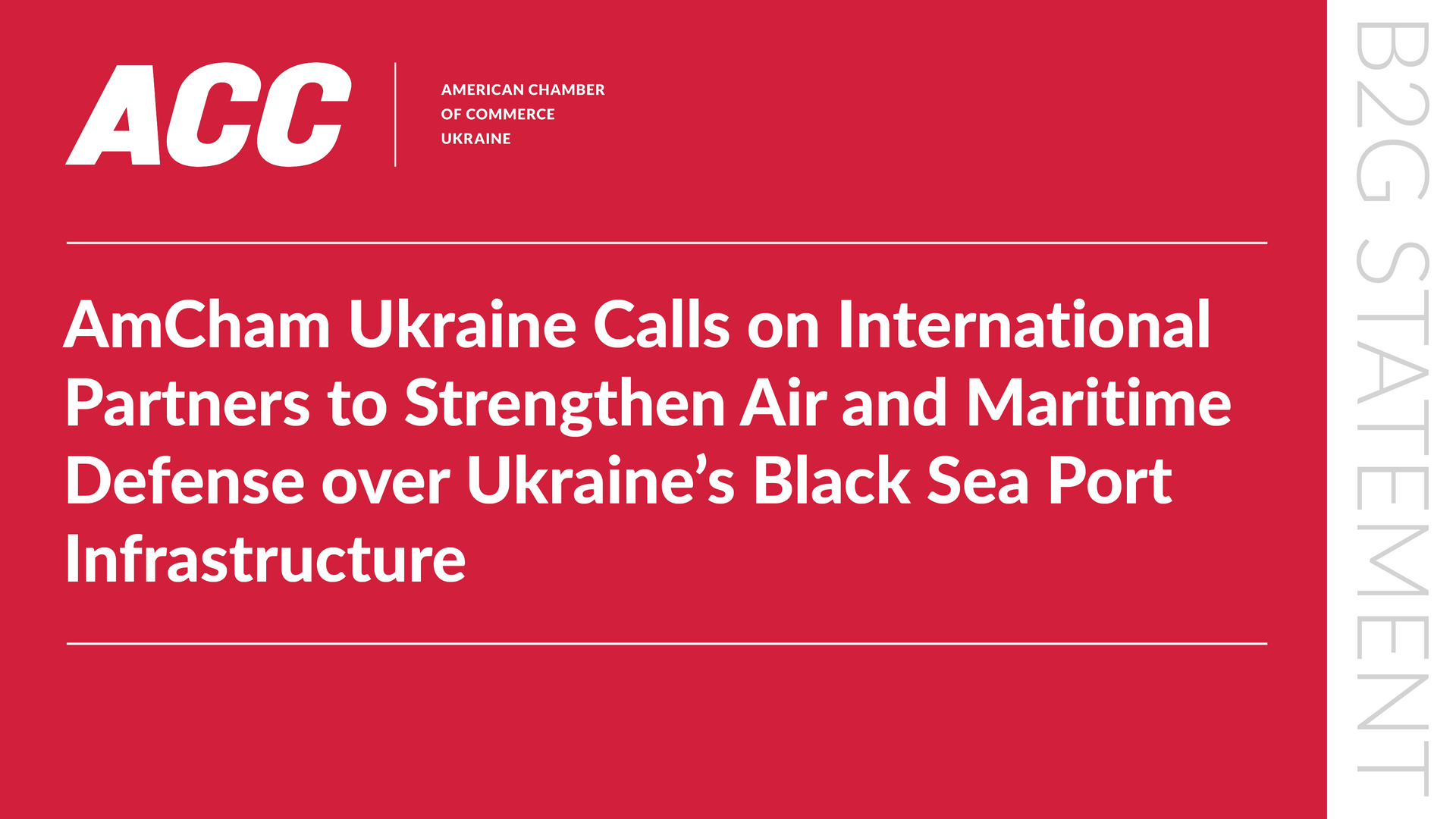A crucial pre-condition to inspiring investor confidence to put significant capital into Ukraine is the stability and predictability of rule of law. Rule of law also serves as a powerful signal of trust for international partners and companies operating on the ground.
According to the US Chamber of Commerce, world's largest and most influential business association, there is a definitive link between rule of law and prosperity: countries that adhere to principles of good governance attract and develop top-caliber companies, which are better equipped to make long-term investments, create jobs, pay taxes, enact high labor and environmental standards, and put down roots in the communities where they operate.
Guarantee real and effective judicial reform, the rule of law, fair justice, as well as transparent operations and selection of judges of all levels – remains a priority #1 for Ukraine. Its implementation is crucial to make the economy grow, improve the business climate, and attract Foreign Direct Investment.
According to Ukraine Business Climate Survey: A Year of Lockdown, conducted by the Chamber in partnership with Citi Ukraine in March 2021, 74% of businesses identified rule of law as the Ukrainian government's #1 focus to achieve economic recovery and growth in 2021.
According to USAID New Justice national polls on trust to the judiciary, other branches of government and public institutions, independence and accountability of judges, perception of corruption in the judiciary system and willingness to inform about its manifestations, held in February-March 2021, only 10% of the general public has acknowledged that they fully or predominantly trust the judiciary branch.
On January 29, 2021, the Verkhovna Rada of Ukraine registered the Draft Law "On Amendments to the Law of Ukraine "On the Judiciary and the Status of Judges" and some Laws of Ukraine on Resumption of the High Qualifications Commission of Judges of Ukraine" (Draft Law #3711-d), which was adopted in the first reading on March 3, 2021. Currently, the text of Draft Law #3711-d has been prepared for the second reading, which is scheduled for consideration at the plenary session on June 17, 2021.
Representatives of the business community are convinced that the resumption of the High Qualifications Commission of Judges of Ukraine (HQCJ), the powers of which were prematurely terminated in November 2019, is essential, as it will unblock the process of evaluation and selection of judges, which is extremely important.
However, the analysis of the provisions of the Draft Law #3711-d shows that its adoption in the current wording will not achieve the set goal, will not contribute to further purification of the judiciary, and strengthen its independence.
Although the Draft Law #3711-d made an attempt to take into account some concerns raised by Ukraine's international partners, NGOs, and the business community, it ignores two main requirements to ensure the formation of a professional, reliable and independent HCJC, as:
1. It does not provide for the right of casting votes of international experts in decision-making by the Selection Commission.
A casting vote of international experts in the Selection Commission on the selection of members of the HQCJ is necessary in order to form a reliable and professional HQCJ composition, which will benefit from public confidence.
2. It leaves the final decision on the selection of a person as a member of the HQCJ to the unreformed High Council of Justice (HCJ).
According to the provisions of the Draft Law #3711-d, the Selection Commission must submit two candidates for each vacancy in the HQCJ to the HCJ, which will select members of the HQCJ based on the results of the interview, which is envisaged by the HCJ Regulations.
In combination with the first point, such an approach will not facilitate the formation of a reliable, professional, and independent composition of the HQCJ and is contrary to the recommendations, in particular, of the Venice Commission which held that the sequence of reforms is important and that it is not appropriate to give unreformed HCJ additional powers.
Additionally, it should be noted that the President of the Venice Commission Gianni Buquicchio, in his recent speech at a conference, stressed that the Commission does not support the Draft Law in the version proposed for the second reading.
Also, Gianni Buquicchio, stressed, inter alia, that the HQCJ should be formed urgently, but in no case should the unreformed HCJ be empowered to select its members. The international experts should be granted a casting vote, and the model of voting in the Ethics Council, proposed by the Venice Commission for the HCJ reforming, should be implemented in regard to the selection of members of the HQCJ. Before empowering the HCJ with the authority over the HQCJ, it is necessary to vet the HCJ and restore public confidence in the body.
In view of the above, the American Chamber of Commerce in Ukraine calls upon the Parliament, when considering Draft Law #3711-d, to include in it the provisions on (i) the casting vote of international experts in the decisions of the Selection Commission; (ii) empowering the Selection Commission to elect members of the HQCJ independently.




























